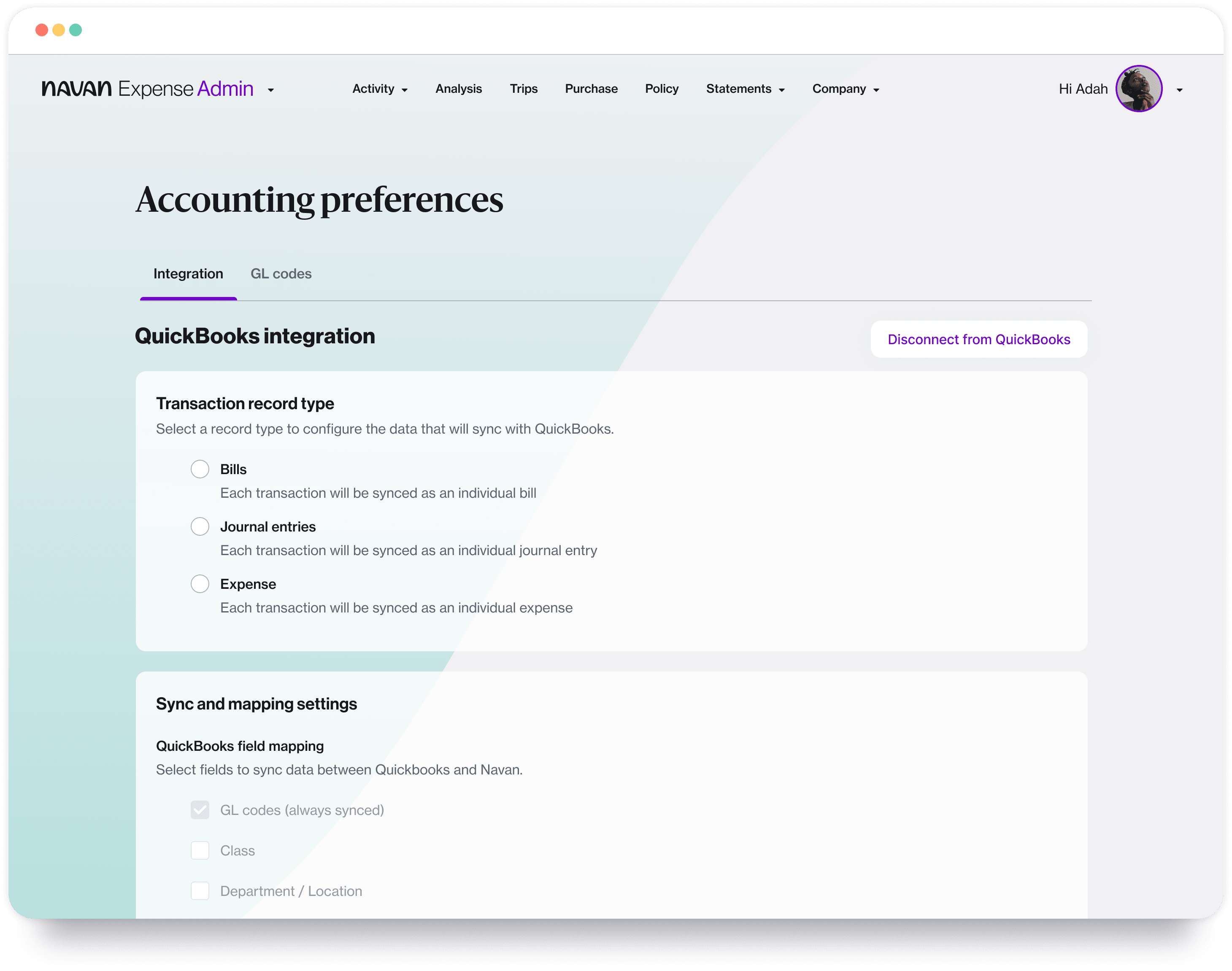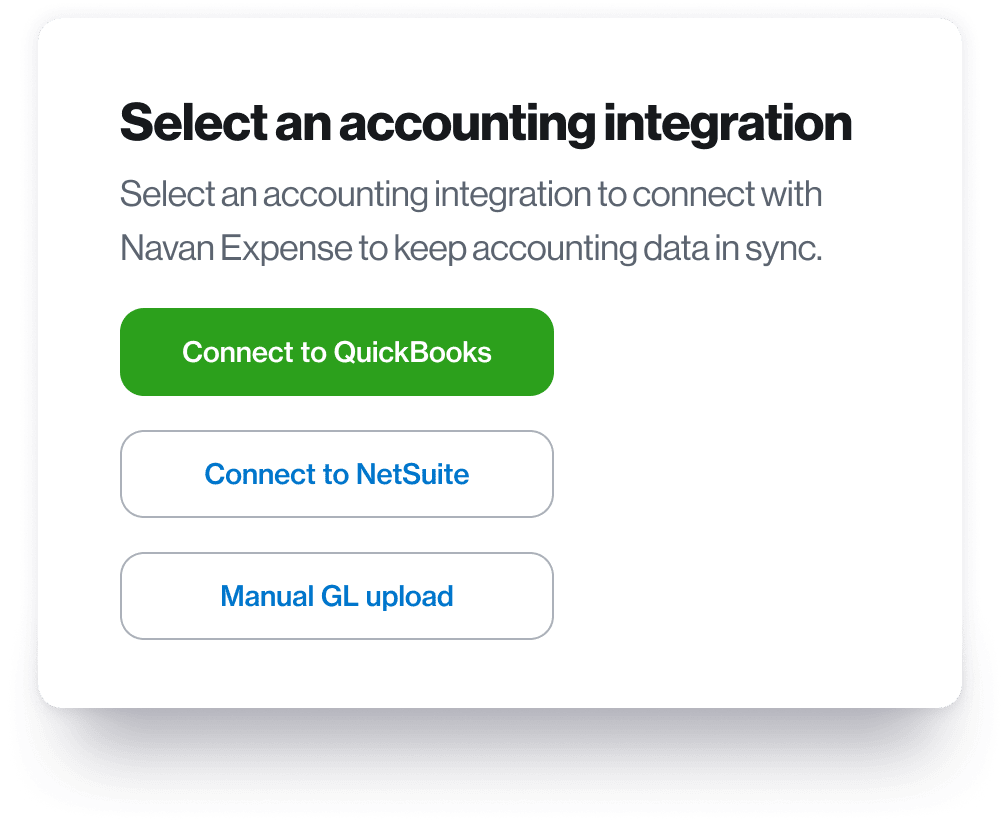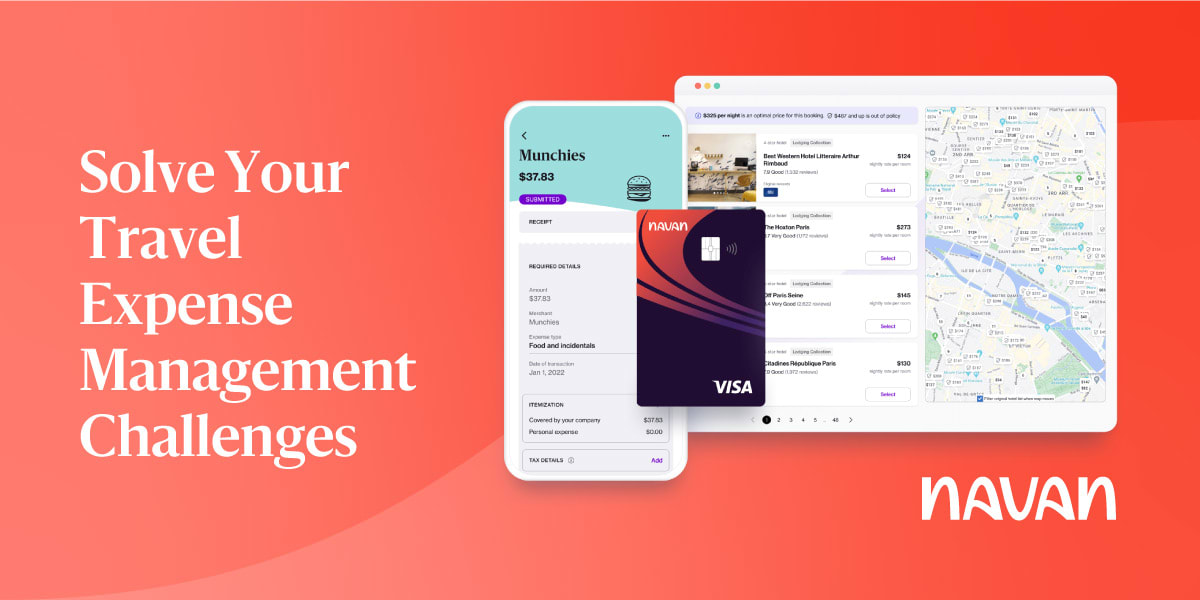Corporate Travel Management: A Complete Overview

Effective corporate travel management is vital to a successful business in today’s fast-paced and interconnected world. But navigating the complexities of the corporate travel industry can be daunting, especially for those new to the field.
That’s why we created this primer on corporate travel management. It's full of essential knowledge and practical insights — from understanding the fundamentals of business travel management to weighing the benefits of implementing a travel management software solution.
Whether you’re an aspiring travel manager or a business professional looking to improve a current travel program, this guide can help unravel the intricacies of corporate travel management.

Corporate Travel Management Basics
In the 2025 State of Corporate Travel and Expense report, 82% of respondents said business travel is “an essential investment” or “a necessary cost” as part of their overall business strategy. It’s clear that everyone involved in business travel, from business travelers to CFOs, can benefit from understanding the basics of corporate travel management.
Below are answers to fundamental questions about corporate travel management.
What Is Corporate Travel Management (CTM)?
Corporate travel management is the process of planning, organizing, and overseeing employee travel within a company or organization. It involves the strategic planning, coordination, and control of the various aspects of business travel.
The primary goal of corporate travel management is to help ensure that employees travel safely and efficiently while adhering to the company’s travel policies and guidelines. By implementing a corporate travel program, organizations can control travel spend, improve the traveler experience, and mitigate any travel risks.
How Do Companies Typically Handle Employee Business Travel?
Companies handle business travel arrangements for employees in various ways. The company’s size, resources, travel requirements, and travel volume are all factors to consider.
Some common approaches for managing business travel include:
- Consumer booking sites: Employees book airfare, accommodations, car rentals, train trips, etc. themselves. via an online booking tool. The company may select specific tools, or the employees can choose themselves. Either way, employees must then submit receipts for reimbursement.
- Traditional travel agents or business travel agencies: Companies use travel agents or agencies to assist with arranging flights, accommodations, and other travel services.
- Travel management companies: Companies outsource all aspects of travel management — and in some cases travel expense management — to specialized agencies.
Companies may use expense management systems or software to streamline the process of tracking and reporting travel expenses. These systems help employees capture receipts, submit expense reports, and facilitate reimbursement processes.

What Is a Travel Management Company (TMC)?
A travel management company (TMC) is a specialized company that assists businesses and organizations in managing their corporate travel needs.
A TMC provides comprehensive travel management services and solutions to help companies streamline their travel processes, optimize travel costs, and ensure efficient and convenient business travel for their employees.
An increase in employee travel comes with an increased need for expense management. Companies may adopt disjointed systems to manage expenses and travel programs, or they can choose an integrated, all-in-one travel and expense solution to increase travel policy compliance, gain access to comprehensive reporting, and save time on reconciliation, reimbursements, and expense reports.
Who Is Involved in The Corporate Travel Management Process?
Several key stakeholders are involved in the corporate travel management process. These stakeholders play different roles and collaborate to ensure effective travel management.
Stakeholders inside the organization:
- Travel managers: Oversee the corporate travel program and manage relationships with travel agents, travel management companies, or travel suppliers.
- Finance teams: Ensure accurate financial management of travel expenses, including monitoring the travel budget and the company’s bottom line and tracking the expense and reimbursement processes.
- Business travelers: Responsible for following travel policies and providing information to facilitate bookings and expense reporting.
- Human resources teams: Assist with travel policy development and employee communication.
- Technology teams: Manage and maintain travel booking systems.
- Risk management and security teams: Develop risk management protocols and ensure the safety and security of employees during global business travel.
Stakeholders outside of the organization:
- Travel agents: Assist individuals or organizations in planning and booking travel arrangements.
- Corporate travel management companies: Collaborate with travel managers to handle bookings, negotiate with suppliers, and provide travel-related support and services.
- Travel suppliers: Airlines, hotel chains, car rental companies, and other travel companies offer dedicated services for corporate travelers.
Exactly who is involved depends on the company’s travel needs and the organization's size.
What Does a Corporate Travel Manager Do?
Corporate travel managers are travel experts who oversee and manage the travel needs of a company or organization. Their role is to oversee the corporate travel program, which could include:
- Developing travel policies
- Negotiating with suppliers
- Handling travel bookings and itineraries
- Assist with alternate travel plans during emergencies
- Ensure compliance with policies
- Track expenses and overall travel spend
- Prioritize traveler safety
Bottom line: A travel manager aims to optimize corporate travel efficiency, cost-effectiveness, and employee satisfaction.
What Is Travel Management Software?
Travel management software is a specialized technology that companies use to help manage their corporate travel programs. The software is designed to streamline and automate various aspects of travel management such as:
- Travel booking
- Travel supplier management
- Approval workflows
- Corporate travel policy enforcement
- Expense management
- Reporting and analytics
Travel management solutions are also offered as user-friendly mobile apps, allowing employees to book and manage their business trips without a travel agent or manager.
Overall, travel management software is a centralized platform to manage travel bookings, policies, expenses, and reporting, giving companies greater control, efficiency, and visibility over corporate travel management processes.
7 Key Components of an Effective Corporate Travel Management Program
No matter the size of the organization, number of stakeholders, or software employed, an effective corporate travel management program typically consists of several key components.
1. Travel Policy
A well-defined travel policy establishes guidelines and procedures for corporate travel. It outlines employee responsibilities, approved booking process and channels, preferred travel providers, travel expense limits, and compliance requirements.
2. Travel Booking and Expense Management Tools
Utilizing a centralized travel booking and expense management platform allows companies to streamline the booking, reimbursement, and reconciliation processes.
3. Supplier Relationship Management
Building and maintaining relationships with preferred suppliers, such as airlines, hotels, and car rental agencies can lead to negotiated rates and enhanced travel inventory for corporate travelers.
4. Traveler Safety and Security
Duty of care is a company’s moral and legal obligation to monitor its employees' safety and security. This component includes implementing travel risk management strategies, providing access to travel assistance services, and communicating emergency protocols.
5. Travel Cost Control and Budgeting
Effective cost control measures involve optimizing travel expenses, negotiating favorable rates with suppliers, analyzing travel data for cost-saving opportunities, tracking travel expenses, and enforcing travel policy compliance — which can now be done at the point of sale with credit cards.
6. Travel Reporting and Analytics
Gathering and analyzing real-time travel data provides companies with valuable insights into travel patterns, expenses, supplier performance, and compliance. This information helps companies identify areas for improvement, make data-driven decisions, and monitor program effectiveness.
7. Employee Communication and Training
Clear communication with employees regarding travel policies, booking procedures, expense reporting, and safety protocols is essential. Providing training or resources on travel management tools or using user-friendly solutions can enhance employee adoption, compliance, and satisfaction.
A travel and expense solution like Navan balances the needs of business travelers with the goals of companies. It gives employees access to a user-friendly interface and the power of choice when booking trips, while helping companies maintain control over travel costs.
Key Advantages of Corporate Travel Management
Unmanaged corporate travel can feel like a free-for-all. Expenses run the risk of spiraling out of control, while chaos can ensue for travelers on the road. While foregoing a managed travel solution might seem like a cost-saving strategy, the lack of structure can end up costing companies more in the long run. From missed savings opportunities to wasted time and compliance headaches, unmanaged travel is a problem waiting to happen. Investing in a corporate travel management system is a strategic move. Here’s why a streamlined approach to travel management is the better option.
Financial Savings
An effective travel program has the power to reduce costs in multiple ways. Negotiated vendor discounts, group bookings, and smarter expense tracking keep budgets in check without squeezing employees into the cheapest middle seat available.
Operational Efficiency
A centralized approach that combines booking, expense reporting, and policy enforcement creates a more organized workflow that lightens the administrative burden on employees. By standardizing processes, businesses eliminate confusion and speed up approvals, making corporate travel less of a headache.
Policy Adherence
Clear travel guidelines can help prevent unnecessary expenses and maintain a company’s financial well-being, by establishing preferred vendors and defining spending limits. Additionally, regular monitoring helps safeguard compliance, so companies can stay financially disciplined and offer flexibility at the same time.
Enhanced Employee Experience
When travel logistics are seamless, employees can focus on their work instead of worrying about trip details. A corporate travel management program clarifies booking procedures, offers support during trips, and prioritizes traveler safety. This helps eliminate friction from the travel process and creates a more positive experience for travelers.
Technology’s Role in Corporate Travel Management
As corporate travel solutions have embraced innovative technology, businesses are reaping the benefits. By moving to AI-driven booking systems and automated expense tracking, these solutions are reshaping how businesses manage and refine their travel programs.
AI-Powered Booking Tools
Gone are the days of endless flight searches. AI-driven features can now analyze travel patterns, predict price trends, and recommend policy-compliant options to simplify the booking process. These tools can also track dynamic pricing so that travelers get the best rates as prices shift. If plans change, automated rebooking handles the adjustments. Plus, modern tools remember traveler preferences, so frequent fliers can get their preferred aisle seat without the extra clicks.
Automated Expense Management
Modern expense management tools track travel spend in real time, using AI to scan receipts, flag policy violations, and accelerate reimbursements. Finance teams get instant visibility, and employees spend less time chasing approvals.
Integrated Travel and Expense Platforms
Integrated platforms merge booking, expense tracking, and reporting into a single system, reducing errors and improving compliance. With mobile interfaces, travelers can book, modify, and expense trips from anywhere.
How to Implement a Corporate Travel Management Strategy: A Creative Guide
Corporate travel encompasses an entire ecosystem, all of which needs to run smoothly in order for companies to stay within budget and keep teams happy and safe. Whether you’re looking to fine-tune your approach or build a strategy from scratch, here’s how to implement a corporate travel management strategy.
1. Assess Current Travel Needs
Look at your organization’s travel habits:
- How often are people flying?
- Where are they going?
- What’s the purpose?
Once you review travel frequency, destinations, and existing policies, identify areas for cost-saving opportunities. Consider what’s working and what’s burning a hole in your pocket.
2. Select the Right Travel Management Solution
Once you’ve mapped out your needs, it’s time to figure out how to manage it all. Do you want to keep things in-house with your own travel manager or partner with a travel management company (TMC) that can handle the heavy lifting?
The right solution should fit your company like a glove. Travelers are likelier to adopt a user-friendly tool with a seamless interface and real-time analytics. If global reach and duty of care are at the top of your list, a TMC with international coverage might be the way to go.

A desktop view of QuickBooks accounting preferences using the Navan app.

An expanded view of the accounting integration modal in the Navan app
3. Train Employees on Travel Policies
A policy is only as good as the people who follow it. Train your employees on everything from booking procedures to acceptable expenses. The clearer the communication, the smoother your travel program will run.
4. Monitor and Optimize
Once the program is up and running, use data to tweak and improve. By monitoring travel expenses, employee compliance, and even supplier performance, you can find opportunities for savings or workflow improvements. Predictive analytics can help you plan for price fluctuations and avoid unnecessary overspending.

A desktop view of travel spend analysis using the Navan app.
Managed travel works smoother and more strategically than ever before. Ready to discover Navan’s traveler-first approach to corporate travel management? Try it today.
This content is for informational purposes only. It doesn't necessarily reflect the views of Navan and should not be construed as legal, tax, benefits, financial, accounting, or other advice. If you need specific advice for your business, please consult with an expert, as rules and regulations change regularly.
More content you might like
Take Travel and Expense Further with Navan
Move faster, stay compliant, and save smarter.




